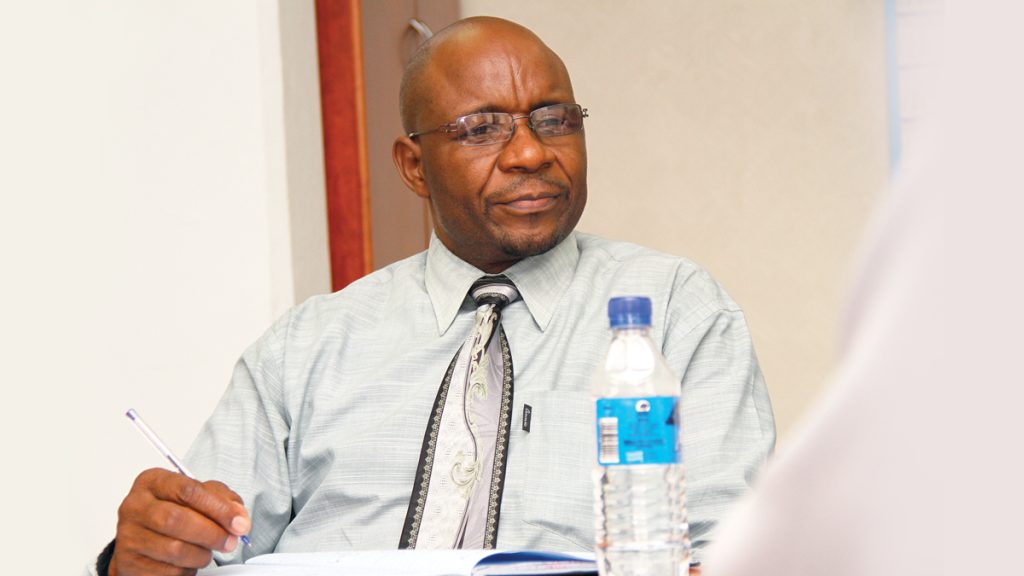- Those principles are not binding . They are just guidelines’ -IEC
- IEC is taking Botswana backward instead of moving forward -Prof Maundeni
CALISTUS BOSALETSWE
The decision by the Independent Electoral Commission (IEC) to deny representatives of political parties, particularly the Umbrella for Democratic Change (UDC), to observe the voter registration process contradicts SADC Election Principles geared towards promoting democracy in Africa.
In turn, IEC has dismissed the Electoral Commission Forum of SADC (ECF) and Electoral Institute of Southern Africa (EISA) principles that guide the running of professional and legitimate elections, following the adoption of principles in 2003. IEC spokesperson, Osupile Maroba told The Patriot on Sunday that the SADC principles are not binding, when quizzed why they were against the presence of political party representatives in monitoring the voter registration process. “Those principles are not binding . They are just guidelines, “ said Maroba.
A former political science lecture at the University of Botswana, Professor Zibani Maundeni has expressed concern that IEC has adopted tactics that are taking Botswana and Africa backward as opposed to moving forward. Among the principles that were adopted in a document titled “Principles for Election Management, Monitoring, and Observation in the SADC Region” (PEMMO) in the presence of IEC in South Africa in 2003, the SADC member states were advised to come up with provision that will allow political parties to monitor the voter registration process through party agents appointed by political parties.
The Electoral Commission Forum of SADC (ECF) and Electoral Institute of Southern Africa (EISA) indicated that the process of allowing political parties to observe election registration was done for purpose of identify those persons who are eligible to cast a ballot on election day.
ECF and EISA in consultation with election bodies in the region stated in a docucument comprised of recommendations that , “The current practice in SADC is that the election bodies are responsible for compiling a national voters’ roll and undertaking voter registration. In many SADC countries the transparency and legitimacy of the voter registration process has been disputed, resulting in a lack of acceptance of the election results,”.
Principles for Election Management, Monitoring and Observation in the SADC region is the product of an initiative that originated at a Southern African Electoral Forum Conference held from 11-14 June 2000 in Windhoek, Namibia. The Forum drew together more than 100 participants from governments, electoral commissions, political parties, civil society and research institutions and electoral and political experts from the SADC region
Meanwhile, Prof Maundeni said the expectation was that IEC would propose for such principles to be made laws though they are not binding. He said that it is upon countries to come up with laws after the recommendations were done as they did with the Electronic Voting Machine (EVM) which was opposed in parliament.
“The electronic voting was part of those principles that were recommended, and IEC came up with the proposed EVM since there was a concern that people queue for long hours waiting to cast their vote.We have a problem if IEC is selective on what principles should be adopted,” he added .
Prof Maundeni further noted that this is a collection of principles helping Africa to go forwards. “I am surprised as to why they are not coming up with such laws that are meant to take Botswana and Africa forward. They should not be selective in adopting the principles . I don’t understand why IEC is moving backward .Is it because of the IEC current leadership,” quipped Prof Maundeni.
He said that it is problematic if IEC is now adopting what other countries are doing by opposing principles that are promoting the democracy.
Among other principles that were recommended for SADC member states was that the cost-effective voter identification protocols should be established to enable inclusion of the maximum possible eligible voters while minimizing multiple or illegal voter registration. The document further stated there was a need for the development of a multi-purpose national identity card to accompany a national population register to avoid illegal registration.
